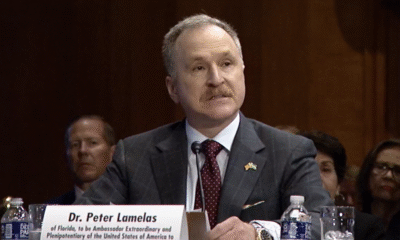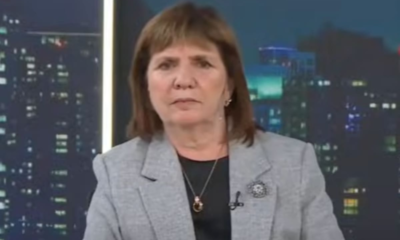INTERNACIONAL
US judge accuses Trump admin of ‘manufacturing chaos’ in South Sudan deportations, escalating feud

A federal judge in Massachusetts chastised senior Trump officials Monday night for failing to comply with his court orders after a group of migrants was deported from the U.S. to South Sudan — the latest dust-up centered on deportations, due process protections and the administration’s willingness, or lack thereof, to comply with federal courts.
In a scathing, 17-page order, U.S. District Judge Brian Murphy rejected Trump’s request to amend or withdraw the judge’s earlier decision requiring them to keep in U.S. custody six migrants who were deported to South Sudan without due process or notice.
On Wednesday, Murphy ordered that the migrants remain in U.S. custody at a military base in Djibouti until each of them could be given a «reasonable fear interview,» or a chance to explain to U.S. officials any fear of persecution or torture, should they be released into South Sudanese custody.
As of Monday night, he said, these interviews had not taken place.
SUPREME COURT UPHOLDS TRUMP’S REMOVAL OF BIDEN APPOINTEES FROM FEDERAL BOARDS
Demonstrators protest during a May Day demonstration against President Donald Trump and his immigration policies in Denver, May 1, 2025. (Jason Connolly/AFP)
«It turns out that having immigration proceedings on another continent is harder and more logistically cumbersome than defendants anticipated,» Murphy said in his order, noting that the Trump administration is free to return individuals to have the interviews carried out on U.S. soil.
He also took aim at Trump officials for attacking the courts, noting Monday night that defendants here have «mischaracterized» the court’s order, «while at the same time manufacturing the very chaos they decry.»
The salvo comes as Murphy, a federal judge in Boston, presides over a class-action lawsuit from migrants who are challenging deportations to third countries, including South Sudan, El Salvador and other countries, including Costa Rica, Guatemala and others that the administration has reportedly eyed in its ongoing wave of deportations.
In considering the third-country removals, Murphy stressed that he has attempted to strike a delicate balance between due process protections under the U.S. Constitution and the Trump administration’s wave of eleventh-hour removals and deportations.
Murphy noted that he allowed the Trump administration to keep the six deported migrants in South Sudan under the custody of U.S. officials, so long as they carry out the so-called «reasonable fear interviews,» and make a determination over whether the migrants’ concerns were adequate.
FEDERAL JUDGES IN NEW YORK AND TEXAS BLOCK TRUMP DEPORTATIONS AFTER SCOTUS RULING
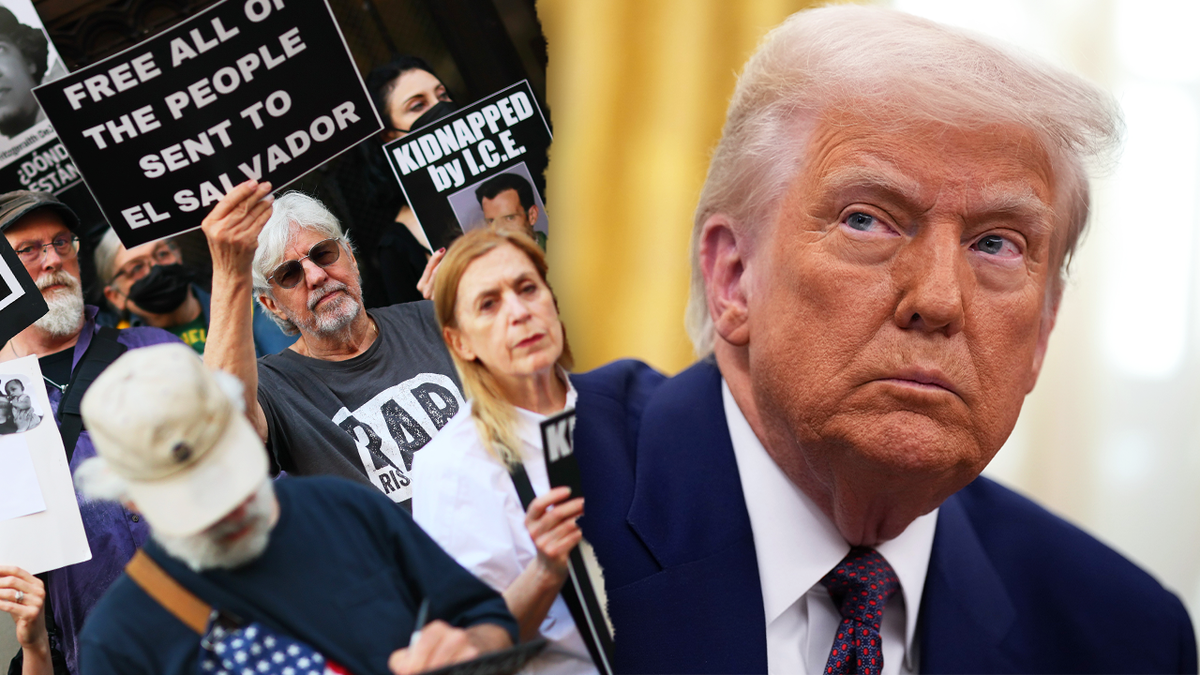
U.S. judges have repeatedly ruled that the Trump administration has violated due process by failing to notify the migrants of their imminent removals. (Getty Images)
«The court never said that defendants had to convert their foreign military base into an immigration facility,» Murphy wrote in his order Monday night. «It only left that as an option, again, at defendants’ request.»
Murphy also doubled down on his earlier orders as «sensible and conservative,» noting that he had repeatedly attempted to strike the right balance in weighing the Trump administration’s requests for the men to remain in South Sudan against their right to habeas proceedings and due process under the U.S. Constitution.
He also cited DOJ’s seemingly fluid position as to what constitutes adequate notice for removals. He said Justice Department attorneys previously told the court that they believe that 24 hours is sufficient and meaningful notice to remove certain migrants, before breaking with that in removing the men to South Sudan.
These individuals also do not appear to have any access to counsel. In one case, he said, plaintiffs declared Immigration and Customs Enforcement officials had canceled at least one prerescheduled meeting with an attorney and her client.
«Class members likewise had no opportunity to learn anything about South Sudan, a nascent, unstable country to which the United States has recently told its citizens not to travel because of crime, kidnapping, and armed conflict,» Murphy said.
‘WOEFULLY INSUFFICIENT’: US JUDGE REAMS TRUMP ADMIN FOR DAYS-LATE DEPORTATION INFO
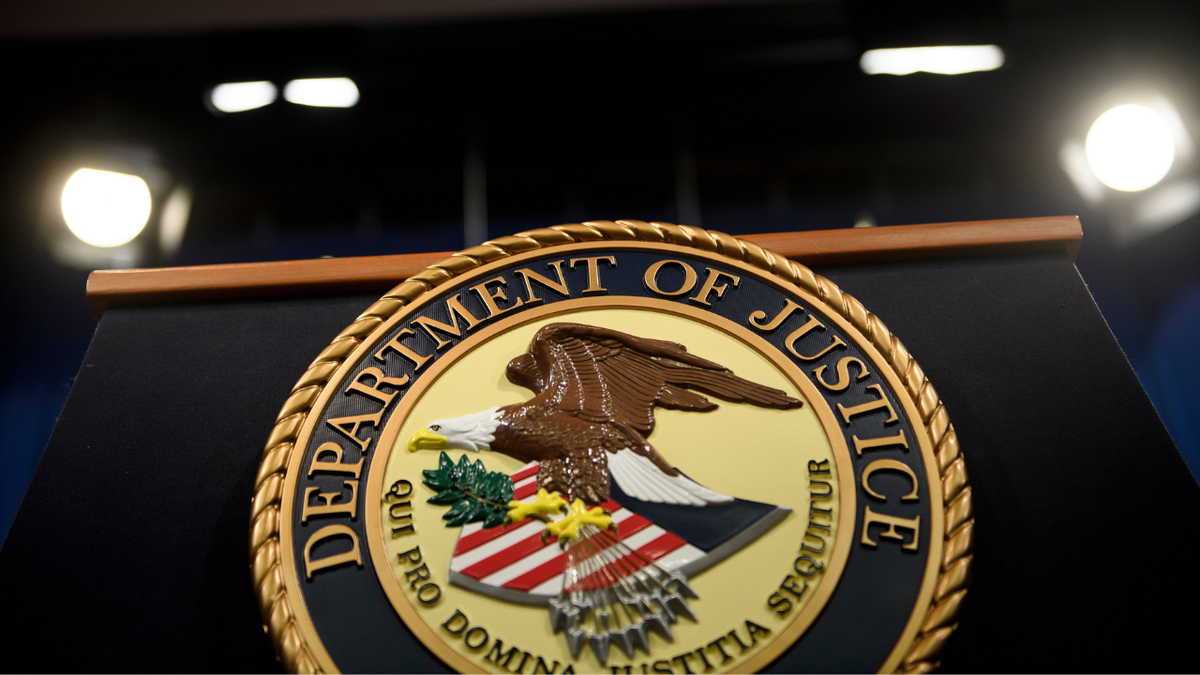
The judge’s order is the latest attempt by federal court judges to rein in the Trump administration as it continues to deport migrants to third countries, including El Salvador and South Sudan. (Brendan Smialowski/AFP via Getty Images)
The judge’s order is the latest attempt by federal courts judges to rein in the Trump administration as it continues to deport migrants to third countries, including El Salvador and South Sudan.
U.S. judges have repeatedly ruled that the Trump administration has violated due process by failing to notify the migrants of their imminent removals, or afford them any opportunity to challenge their deportations in court— a view reiterated, albeit narrowly, by the Supreme Court four separate times since Trump took office.
The judges have repeatedly ordered the Trump administration to facilitate their return to the U.S. To date, the Trump administration has not complied publicly with any of the requests to return the deported individuals.
White House officials, meanwhile, have blasted so-called «activist» judges as attempting to enact a political agenda, and have repeatedly rejected the notion that illegal immigrants are not entitled to due process.
APPEALS COURT BLOCKS TRUMP ADMIN’S DEPORTATION FLIGHTS IN ALIEN ENEMIES ACT IMMIGRATION SUIT

President Donald Trump took aim at what he described as «USA hating judges» in a Truth Social post May 26, 2025, arguing that they «suffer from an ideology that is sick and very dangerous for our country.» (Kevin Dietsch/Getty Images)
Trump took aim at what he described as «USA hating judges» in a Truth Social post Monday, arguing that they «suffer from an ideology that is sick and very dangerous for our country.»
Earlier, he described Murphy as yet another «activist judge» who he said is trying to protect «criminal illegal immigrant monsters.»
«The court recognizes that the class members at issue here have criminal histories,» Murphy wrote in an apparent response to these comments Monday night.
«But that does not change due process,» he wrote. «The court treats its obligation to these principles with the seriousness that anyone committed to the rule of law should understand.»
Murphy added in his order that the Trump administration is welcome to submit its arguments to the court in writing.
But he noted, «From this course of conduct, it is hard to come to any conclusion other than that Defendants invite lack of clarity as a means of evasion.»
CLICK HERE TO GET THE FOX NEWS APP
As of Monday, he said, this step had not been completed.
Donald Trump,Federal Courts,Immigration,Supreme Court,Migrant Crime
INTERNACIONAL
La feroz política migratoria de Donald Trump deja a cientos de migrantes varados en Ciudad de México
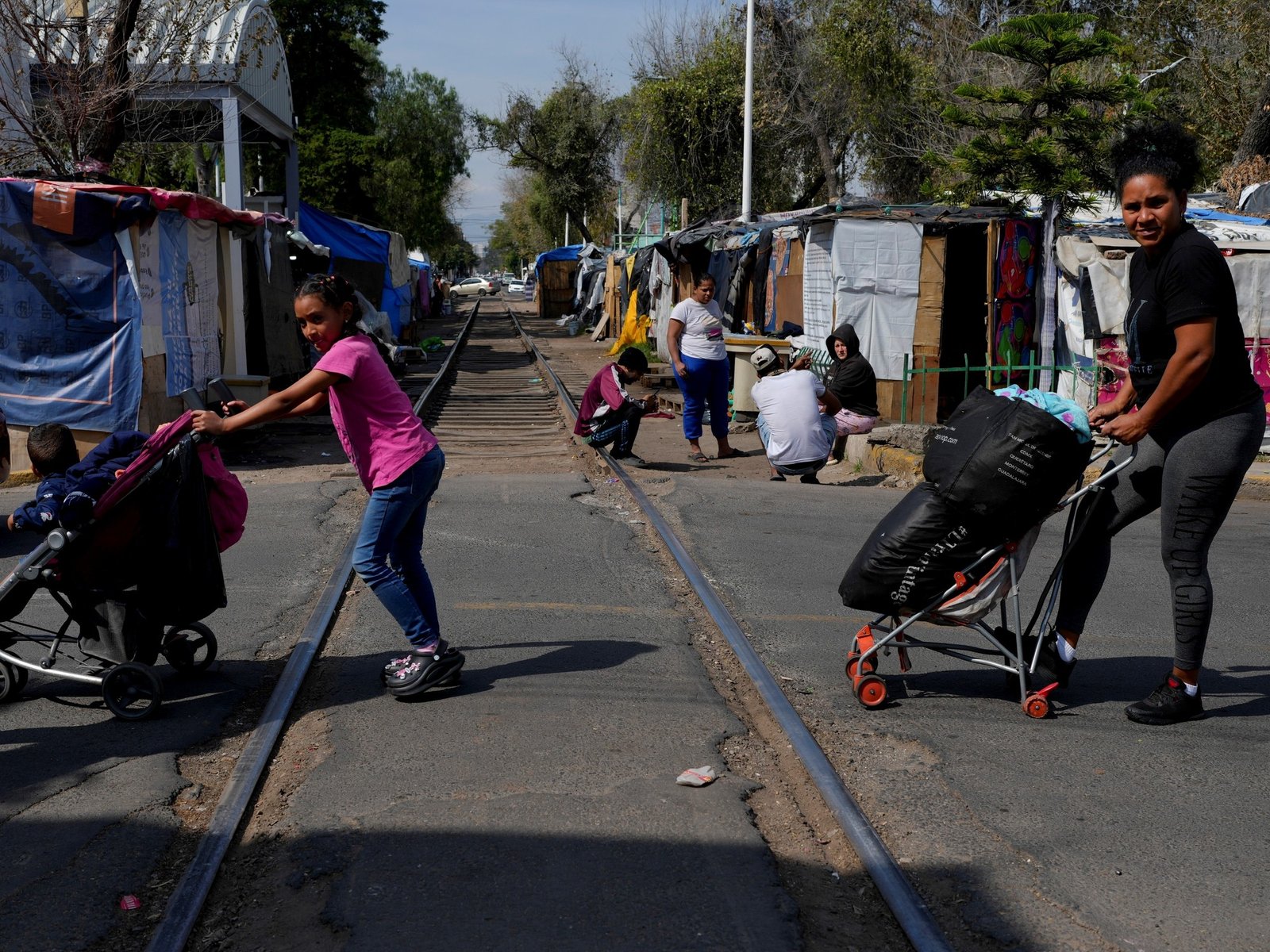
La Ciudad de México se ha convertido en un punto crítico para cientos de migrantes, que permanecen varados ante la falta de documentos y entre el miedo y la desconfianza hacia las instituciones, agravando la crisis migratoria en la capital mexicana.
El llamado «efecto frontera», que antes se concentraba en ciudades fronterizas como Tijuana (norte) o Tapachula (sur), se ha instalado en la capital del país, ante las nuevas restricciones migratorias en EE.UU. y desde el regreso del presidente Donald Trump a la Casa Blanca el 20 de enero.
Tania Rodríguez Zafra, directora de la organización civil Ayuda en Acción México, explicó a EFE que en los últimos seis meses ha cambiado la dirección y concentración del flujo migratorio hacia Estados Unidos, especialmente debido al fin de las citas CBP-One para solicitar asilo en ese país y el aumento de deportaciones.
Antes, muchas personas llegaban directamente a las fronteras norte o sur, buscando cruzar o iniciar trámites, pero ahora, las nuevas reglas han empujado a las personas migrantes a detenerse en el centro del país, expuso Rodríguez Zafra.
En México, se reciben entre 500 y 800 solicitudes de asilo cada día, según datos de la Comisión Mexicana de Refugiados (Comar), obtenidos por Ayuda en Acción.
«Entonces decimos: ¿Dónde quedan todos? Si las fronteras están casi desiertas, pues todos se están asentando en Ciudad de México, esperando una oportunidad de que se puedan abrir otra vez las fronteras de Estados Unidos», apuntó Rodríguez.
Un informe de Ayuda en Acción revela que el 44% de 351 personas migrantes encuestadas en la capital, principalmente provenientes de Venezuela, Cuba y Centroamérica, no pueden avanzar ni establecerse, debido a barreras legales, amenazas de deportación y desconfianza institucional.
Entre los testimonios de «aspirantes estructuralmente bloqueados» recogidos en el informe, está el del venezolano Luis Miguel, quien sobrevive con un empleo en una fábrica, pero está «desilusionado» con la calidad de vida.
«Si la página vuelve a abrirse, me voy», afirma Luis Miguel.
Ante la creciente inmovilidad migrante en la capital, el gobierno de Ciudad de México ha puesto en marcha un plan para habilitar albergues para personas en movilidad, lo que ha desatado protestas vecinales en zonas como Peralvillo y Azcapotzalco, donde el principal reclamo ha sido la falta de planeación y consulta previa.
En el barrio de Peralvillo, el descontento creció tras el cierre de un inmueble que albergaba un hospital y la Escuela Libre de Homeopatía de México, donde se atendía a vecinos de colonias cercanas como Tepito, Morelos, Tlatelolco y Guerrero, muchos de ellos comerciantes sin seguridad social e incluso personas migrantes.
Isis María Infante, médica y docente de la escuela, dijo a EFE que su molestia no es en contra de la población migrante, quienes han sido «parte de los beneficiarios de esta institución», sino el hecho de que el gobierno «utilice» a las personas en movilidad como un «escudo» para justificar lo que consideran una «expropiación» del predio, acusando de «xenofobia» a quienes se oponen.
«Nosotros como mexicanos estamos sufriendo una situación terrible en Estados Unidos. No tiene absolutamente nada que ver (con xenofobia). Nosotros aquí estamos luchando por nuestra escuela que le da atención a comunidades que están en una situación de necesidad extrema», afirmó Infante, quien labora desde hace tres años en la institución fundada en 1912.
Como alternativa a los albergues, Ayuda en Acción apuesta por atender la «problemática estructural» de la movilidad, por lo que a finales de 2024 abrió la primera casa de transición en la capital, enfocada en mujeres y población LGTBI, que reciben un alojamiento temporal y apoyo para regularización de documentos, empleo y vivienda, pues «hay gente que quiere solamente una oportunidad», apuntó Rodríguez Zafra.
«Las personas que realmente opten por tener una vida digna y una estabilidad entran al programa y las que no, pues seguirán esperando a que abra Estados Unidos. Pero nosotros ( ) creemos que por lo menos este año no se van a abrir las fronteras», advirtió la experta.
INTERNACIONAL
‘Lawless and insane’: Trump admin readies for fight after judges block Abrego Garcia removal for now
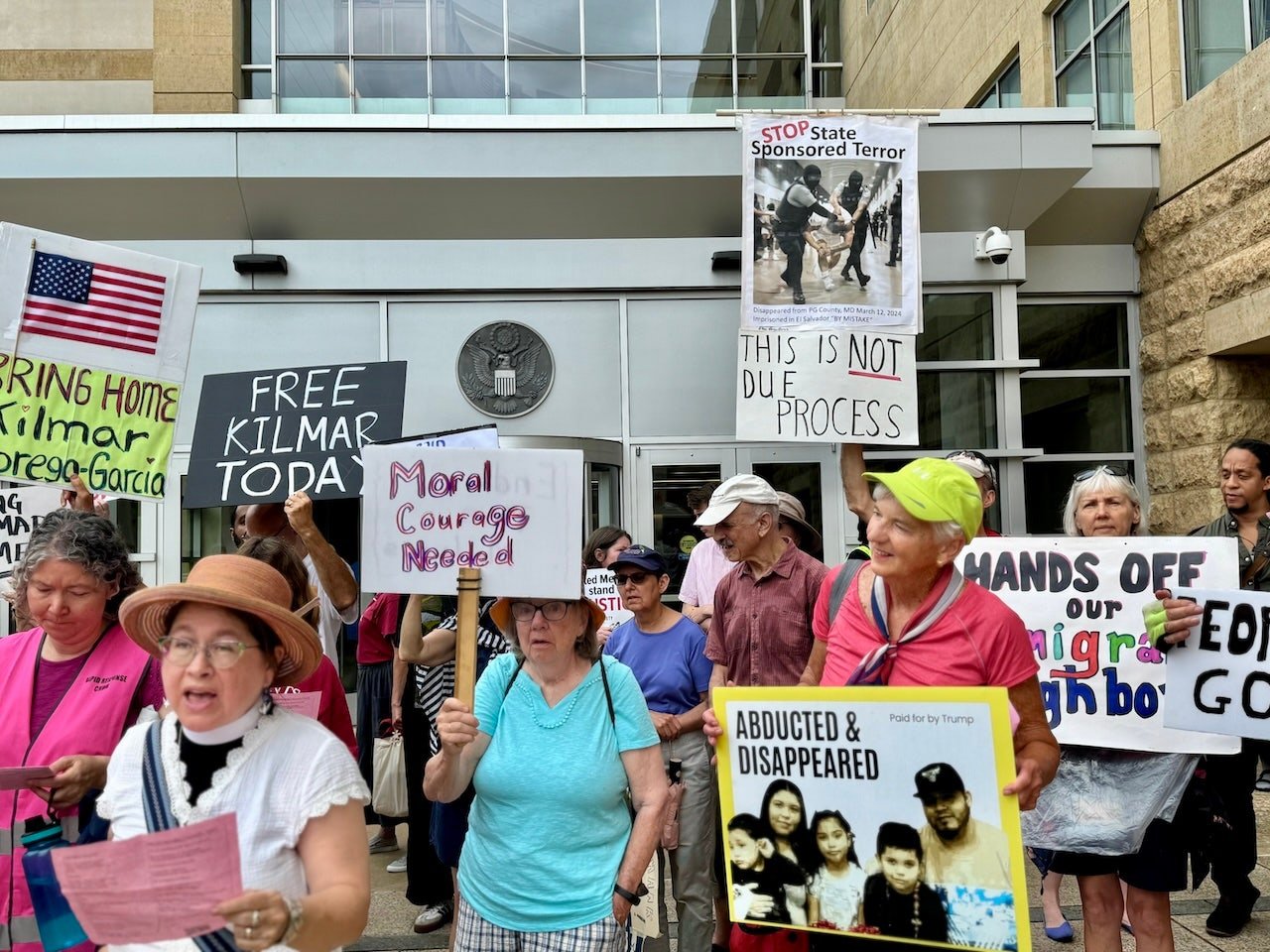
NEWYou can now listen to Fox News articles!
A trio of judges slowed the Trump administration’s effort Wednesday to immediately deport Salvadorian migrant Kilmar Abrego Garcia for a second time, in a series of back-to-back court orders that were praised by Abrego’s attorneys — but had Trump officials posturing for a fight.
The orders came in a span of 90 minutes from the U.S. districts of Tennessee and Maryland and halted, for now, the Trump administration’s stated plans to have Immigration and Customs Enforcement (ICE) arrest Abrego Garcia and immediately begin removal proceedings to deport him to a third country, such as Mexico or South Sudan. Justice Department officials acknowledged that plan in court earlier this month, telling a federal judge in Maryland that the handoff from U.S. marshals to ICE officials would likely take place outside the federal prison where Abrego Garcia is currently being held.
Those fears were bolstered further after senior Trump administration officials took to social media Wednesday to rail against the string of court rulings. Department of Homeland Security (DHS) Assistant Secretary Tricia McLaughlin vowed on X Wednesday that Abrego Garcia «will never walk America’s streets again.»
«The fact this unhinged judge is trying to tell ICE they can’t arrest an MS-13 gang member, indicted by a grand jury for human trafficking, and subject to immigration arrest under federal law is LAWLESS AND INSANE,» she said.
‘WOEFULLY INSUFFICIENT’: US JUDGE REAMS TRUMP ADMIN FOR DAYS-LATE DEPORTATION INFO
President Donald Trump, accompanied by Pam Bondi, speaks before Bondi is sworn in as U.S. Attorney General in the Oval Office at the White House. (Andrew Harnik/Getty Images)
The remarks prompted fresh concerns from immigration advocates, as well as lawyers for Abrego Garcia and his family.
«We have heightened, ongoing concerns about the Trump administration’s compliance with any and all those involved» in the case, Chris Newman, an attorney who represents Abrego Garcia’s family, told Fox News Digital in an interview Wednesday after the orders.
His concerns came despite the string of near-term victories for Abrego Garcia, aimed at affording him due process and access to counsel ahead of his removal.
In Nashville, U.S. District Judge Waverly Crenshaw on Wednesday ordered Abrego Garcia’s release from criminal custody pending trial, writing in a 37-page ruling that the federal government «fails to provide any evidence that there is something in Abrego’s history, or his exhibited characteristics, that warrants detention.»
He also poured cold water on the dozens of allegations made by Trump officials, including by DHS Secretary Kristi Noem in Nashville last week, that Abrego Garcia is an MS-13 gang member.
«Based on the record before it, for the court to find that Abrego is member of or in affiliation with MS13, it would have to make so many inferences from the government’s proffered evidence in its favor that such conclusion would border on fanciful,» he said.
SUPREME COURT FREEZES ORDER TO RETURN MAN FROM EL SALVADOR PRISON

Department of Homeland Security Secretary Kristi Noem speaks during a tour of the Terrorist Confinement Center on March 26, 2025 in Tecoluca, El Salvador. (Alex Brandon-Pool/Getty Images)
U.S. Magistrate Judge Barbara Holmes, tasked with implementing that order, stayed Abrego Garcia’s release from criminal detention for 30 days, a request made by his attorneys earlier this week.
Two minutes after Judge Crenshaw’s ruling, U.S. District Judge Paula Xinis, the judge overseeing his civil case in Maryland, issued an emergency order blocking the administration from immediately taking Abrego Garcia into ICE custody, citing concerns he would otherwise be removed immediately and without due process.
She also ordered that Abrego Garcia be sent to the ICE Order of Supervision at the Baltimore Field Office, and that the Trump administration notify Abrego Garcia and his counsel of any plans to remove him to a third country 72 hours in advance, to ensure access to counsel and to challenge the country of removal.
Lawyers for Abrego Garcia praised the court orders Wednesday, though they stressed there is a long road ahead — and one that remains fraught with uncertainty.
«These rulings are a powerful rebuke of the government’s lawless conduct and a critical safeguard for Kilmar’s due process rights,» Simon Sandoval-Moshenberg, one of Abrego Garcia’s attorneys, said Wednesday.
However, Abrego Garcia’s case has been the center of a monthslong legal maelstrom and is one that critics argue has allowed the Trump administration to test its mettle on immigration enforcement and its ability to slow-walk or evade compliance with federal courts.
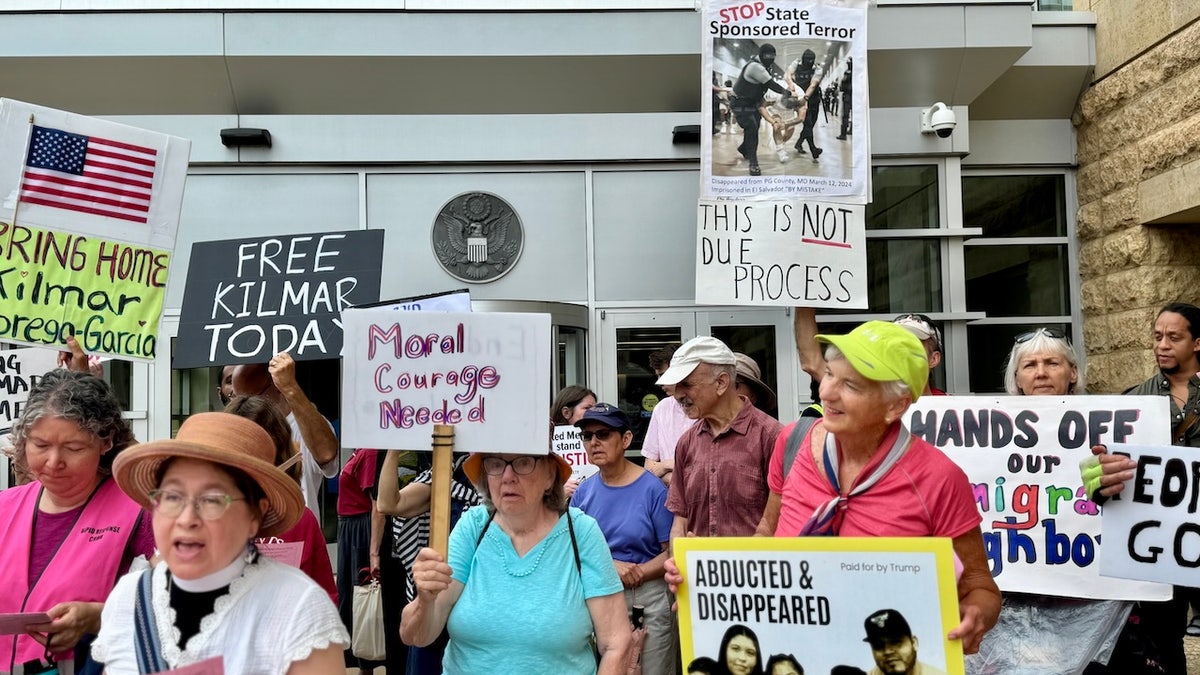
Demonstrators gather outside the U.S. District Court in Greenbelt, Maryland, to protest the Trump administration’s deportation of Kilmar Abrego Garcia, who was sent to El Salvador in March in what administration officials said was an administrative error. (Breanne Deppisch/Fox News Digital)
Whether the administration will appeal the orders Wednesday, or otherwise honor them, remains to be seen.
The Supreme Court has in recent months sided with the Trump administration on a number of key court cases, as well as a flurry of emergency orders, suggesting they could move for emergency intervention at that level.
Though justices on the high court ordered unanimously that the Trump administration facilitate Abrego Garcia’s return to the U.S. earlier from El Salvador this year, it’s unclear whether they would intervene at this point to head off the administration’s planned removal. Any challenge to the Tennessee orders, including the 30-day stay, would also be heard by the conservative-majority U.S. Court of Appeals for the Sixth Circuit, which could block the lower court orders from taking force.
Others noted the Trump administration’s posture in recent immigration cases, including in the wake of their removal of hundreds of migrants to El Salvador’s CECOT prison earlier this year.
Critics argue the Trump administration has been slow, or downright recalcitrant, to comply with court orders — and their actions prompted two judges in Washington, D.C., and Maryland to threaten potential contempt proceedings earlier this year. U.S. District Judge James Boasberg’s April ruling, which found there was probable cause to hold the administration in contempt for violating his order blocking them from using a wartime law to deport migrants to CECOT, was stayed by a federal appeals court.
On the other hand, Trump officials have railed against the «activist» judges, who they argue have blocked their agenda and overstepped their court powers.
Lawyers for Abrego Garcia and his family say they are clear-eyed about the administration and expected attempts to challenge the orders, even while the details of the efforts remain unclear.
CLICK HERE TO GET THE FOX NEWS APP
«It’s now a matter of public record that their posture since the beginning is to say, ‘F— you’ to the courts,» Newman, the lawyer for Abrego Garcia’s family, said in an interview.
«So, to say that we are being vigilant about potential bad faith efforts by the Trump administration would be an understatement,» he said.
INTERNACIONAL
Uruguayos con becas en Francia piden una solución por los pasaportes: “Nuestro sueños se ven amenazados”
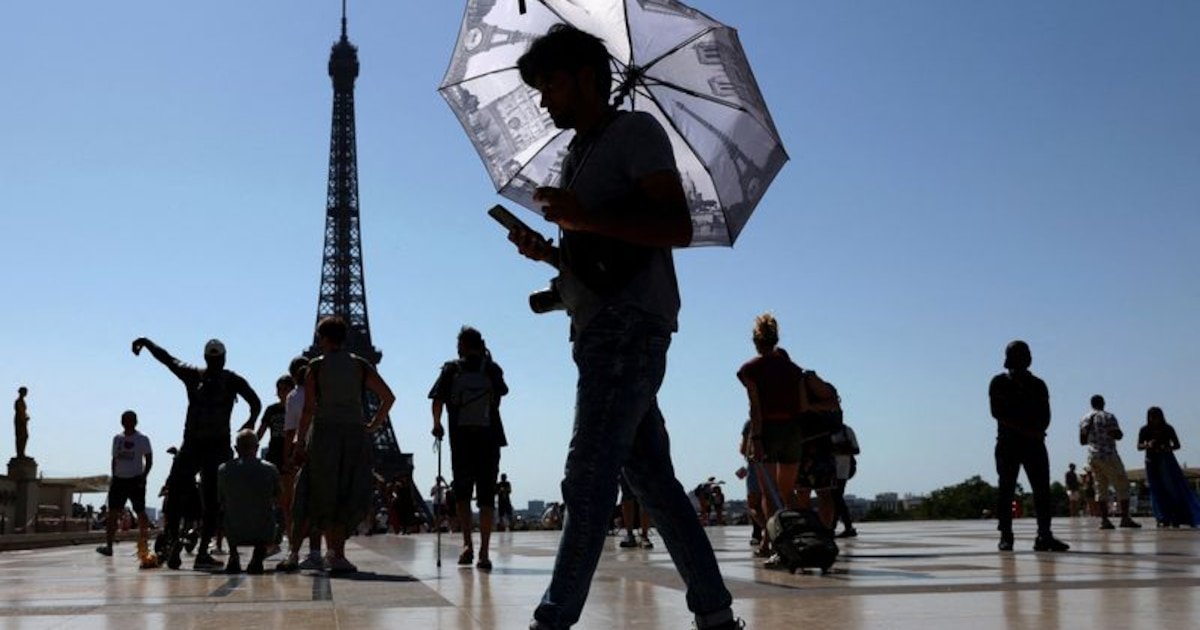
La nueva versión del pasaporte uruguayo no incluye el lugar de nacimiento y esto ha generado un problema diplomático para el país. Alemania, Francia y Japón han advertido por esta omisión en el documento uruguayo y anunciaron –a diferente escala– restricciones para sus ingresos. El gobierno uruguayo busca bajarle el perfil a este asunto, al tiempo que estudiantes becados piden una solución “urgente” a este problema.
Entre los principales cambios del nuevo pasaporte se encuentra la modificación del título “Nacionalidad” por la denominación “Nacionalidad/Ciudadanía”, consignándole el código “URY” tanto a los ciudadanos naturales como a los legales. Esta medida permite que haya una coincidencia entre el país que emite el documento y la ciudadanía de su titular.
La medida de esos dos estados europeos tiene matices. En el caso de Alemania, el nuevo pasaporte uruguayo no tiene validez ni siquiera para estancias cortas. En el caso de Francia, la traba es para visas por estadías mayores a 90 días.

Esto ha perjudicado a un grupo de estudiantes becados. En una carta dirigida al noticiero Telemundo de Canal 12, aseguran que “tras años de esfuerzo” obtuvieron “oportunidades académicas excepcionales en Francia”. “Entre nosotros hay admitidos en instituciones de renombre como el Institut Polytechnique de París, la Sorbonne, Sciences Po, Rennes School of Business y receptores de la prestigiosa beca Eiffel, una de las más competitivas del mundo”, expresó.
La carta está firmada por siete estudiantes, pero es compartida por cerca de una decena, ya que algunos prefieren no revelar su identidad. Los firmantes son: Candela Sánchez, Federico Méndez, Kevin Solano, Salvador Martínez, Santiago Martínez, Stephanie Ravaschio y Valentina Perchman.
El caso de Solano fue uno de los que se había hecho público hace algunos días: se trata del joven que fue admitido para estudiar en La Sorbonne pero su visa fue rechazada por el nuevo pasaporte.

En la carta firmada por los estudiantes indican que tienen el sueño de desarrollarse académica y profesionalmente en estas instituciones reconocidas a nivel mundial, además de generar vínculos internacionales para luego “aplicar ese conocimiento en beneficio del país”.
“Nuestra intención es clara: formarnos con los mejores para luego aportar lo aprendido a Uruguay. Sin embargo, esos sueños hoy se ven amenazados”, expresaron en la misiva.
“No podemos tramitar nuestras visas. Algunos de nosotros ya deberíamos estar allá; otros viajamos en los primeros días de agosto. Cada día que pasa se reducen nuestras chances de llegar a tiempo para el inicio de clases y cumplir con los requisitos de nuestras becas”, advierten.

Los estudiantes reconocieron que el gobierno está trabajando de manera activa para solucionar este tema. Sin embargo, la respuesta que les dan en la embajada francesa es que no pueden saber cuánto tiempo va a demorar este trámite.
“Solicitamos encarecidamente a las autoridades que, paralelamente a las gestiones ya iniciadas, exploren soluciones transitorias urgentes. Entre ellas, consideramos viables medidas como la impresión de pasaportes con el diseño anterior o la posibilidad de que, en coordinación con la embajada francesa, se acepte una combinación del nuevo pasaporte con una partida de nacimiento apostillada u otra documentación que permita identificar fehacientemente nuestra nacionalidad”, sugieren como alternativa.
Los estudiantes becados insistieron en que necesitan una “solución ya”.

El embajador francés ratificó esta semana la decisión. Entrevistado en el diario El País este martes, Jean-Paul Seytre detalló que se le pidió al gobierno los nuevos ejemplares, los cuales fueron enviados a las autoridades francesas, que los están analizando.“En realidad, nunca vi pasaportes que no incluyan el lugar de nacimiento. En todo caso, el estudio es una competencia del Ministerio del Interior”, expresó el diplomático.
El diplomático aclaró que, hasta ahora, no son muchos los afectados por este problema, una afirmación que expresó para “apaciguar el debate”.
Europe,Tourism / Travel,Weather Markets / Weather,PARIS

 POLITICA3 días ago
POLITICA3 días ago🗳️ El chamuyo de las elecciones en la Provincia: se postulan, pero no a asumen

 POLITICA3 días ago
POLITICA3 días agoFuerte malestar en la CGT por la ausencia de gremialistas en las listas bonaerenses del peronismo

 ECONOMIA2 días ago
ECONOMIA2 días agoEl consumo en Argentina crece 4% en junio, ante menor inflación y más crédito



